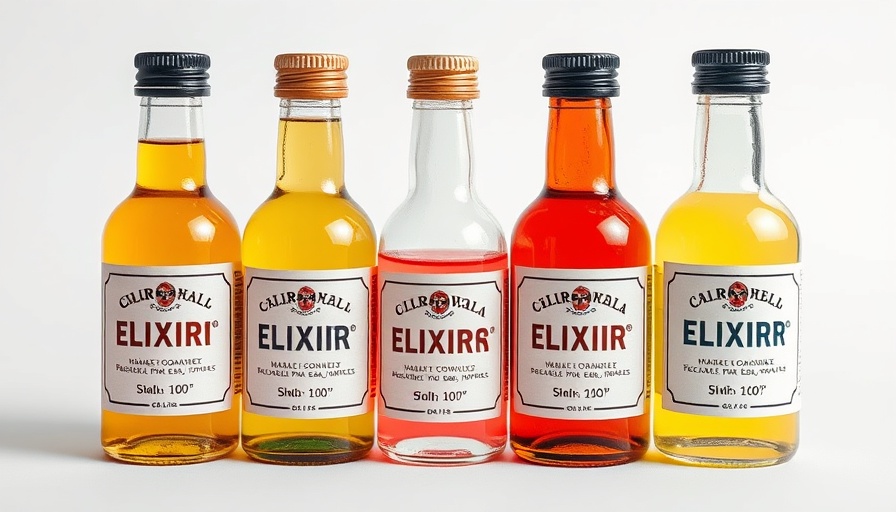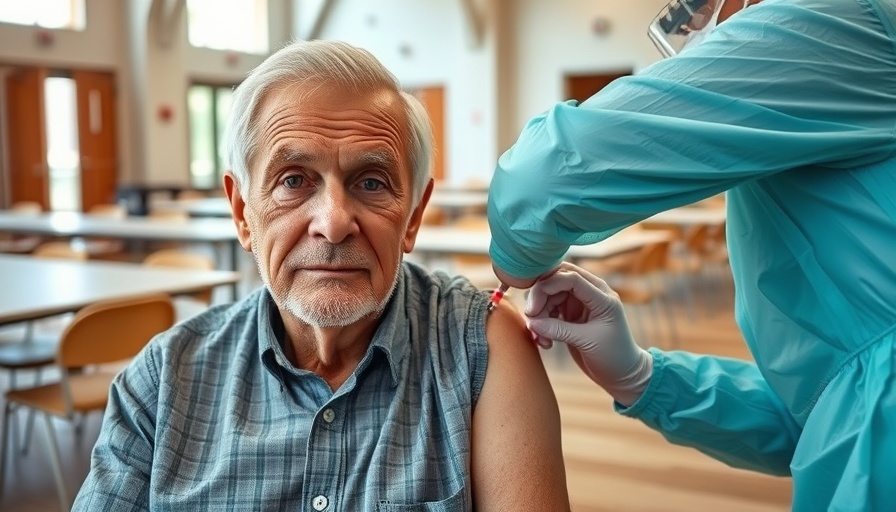
Understanding the Risks of Gas Station Heroin
In recent years, a concerning trend has emerged within the realm of convenience store and gas station products—items commonly referred to as "gas station heroin." This colloquial term primarily describes energy shots and cognitive supplements containing tianeptine, a substance that has raised alarms among health officials. Though tianeptine is approved in several countries as an antidepressant, it remains unapproved in the United States, posing significant risks to consumers.
Health experts have sounded the alarm bell over the steady rise in calls to poison control centers linked to tianeptine products. The FDA (Food and Drug Administration) has warned health professionals about the dangers these unregulated supplements present, becoming a significant concern for public health. Notably, products such as Neptune’s Fix and others are being marketed without definitive evidence of their claims regarding benefits for addiction treatment, pain relief, or depression management.
The Grey Area of Tianeptine Sales
The marketing and sale of tianeptine-containing products fall into a grey area of regulation, where their legality is murky at best. Although the FDA has repeatedly reminded companies that tianeptine should not be added to foods or marketed as dietary supplements, many under-the-radar brands continue to do just that.
Manufacturers often package these products with enticing labels—like Zaza, Tianaa, or TD Red—yet their lack of FDA approval raises safety concerns. As Dr. Diane Calello from the New Jersey Poison Information and Education System points out, the absence of regulation in these products means consumers are left vulnerable to potentially hazardous side effects, which can range from rapid heart rates to more severe outcomes like seizures and low blood pressure.
Why Are Consumers Drawn to These Products?
Many individuals are lured by the promises made by these products. Marketing often highlights tianeptine's supposed ability to help significantly with cravings for opiates and offer enhanced cognitive functions. These claims are particularly alluring to those struggling with addiction or mental health challenges, as the opioid epidemic continues to affect many communities.
However, despite the claims, experts emphasize that tianeptine is not an opioid and carries its own unique risks, such as addiction and withdrawal symptoms similar to those associated with prescription opioids. Law enforcement officials urge people to think twice before purchasing these products unearthed from the depths of gas stations and convenience stores.
Statistical Evidence of the Problem
A closer look at the statistics reveals the breadth of this issue. In a recent study from New Jersey, researchers documented a notable increase in emergency calls linked to flavored elixirs containing tianeptine. More than half of the reported cases resulted in hospitalizations, highlighting the severity of the consequences associated with these substances.
This alarming trend not only points to the specific dangers posed by tianeptine products but also reinforces the need for tighter regulation of the supplements sold in convenience stores, especially those designed to appeal to vulnerable populations.
Looking Ahead: Future Trends and Predictions
As awareness of the risks associated with unconventional substances like tianeptine grows, the conversation around regulation and consumer protection becomes increasingly important. Health representatives are expected to push for stricter controls on the sale and marketing of these products in the U.S., where many believe the current laws do not adequately protect consumers.
The expectation is that greater scrutiny of health claims associated with energy and cognitive supplements will lead to improved safety standards, potentially minimizing the prevalence of addictive substances available at gas stations.
Take Action: Protect Yourself and Others
With the increase in popularity of these products, educating oneself and others about their potential dangers has never been more critical. As consumers, it is essential to ask questions regarding the safety and efficacy of what we choose to put in our bodies. Be wary of substances marketed as miracle supplements without rigorous scientific backing.
Consider sharing this critical information with friends, family, and within your community to curb the trend of gas station heroin. Awareness and education are pivotal in safeguarding public health.
 Add Row
Add Row  Add
Add 




 Add Row
Add Row  Add
Add 

Write A Comment